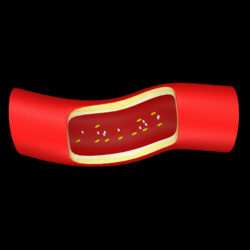Top Class Actions’s website and social media posts use affiliate links. If you make a purchase using such links, we may receive a commission, but it will not result in any additional charges to you. Please review our Affiliate Link Disclosure for more information.

Together with his wife, he recently filed an IVC filter lawsuit against C.R. Bard, alleging the company failed to disclose vital safety information regarding their product.
Plaintiff couple Thomas H. and Kathy H. allege their lives and marriage have been severely impacted by the defective nature of the Bard G2 IVC filter and the resulting IVC filter removal.
According to the IVC filter lawsuit, Thomas underwent IVC filter placement surgery on Jan. 26, 2009 for typical treatment purposes. However, the IVC filter reportedly perforated and migrated away from its implant site soon after the device was implemented.
IVC filters are small, metal cage-like devices that are directly implanted in the inferior vena cava, which is the largest vein of the human body and a major part of the circulation system. These devices work by stopping blood clots that form in the legs or pelvis from traveling to the heart and lungs.
According to the Oregon Health & Science University, IVC filters are typically prescribed to patients who cannot be prescribed anticoagulant treatment, with temporary and permanent placement models available.
However, retrievable IVC filters have been linked to numerous serious injuries due to the devices’ reportedly high failure rate. According to the IVC filter lawsuit, the Bard G2 IVC filter has a tendency of perforating the vein and migrating away from the vein, as well as fracturing after being implanted.
Fracturing significantly increases the risk of internal bleeding and even death in patients. Thomas says he will need continuous medical monitoring due to not being able to undergo IVC filter removal.
Overview of IVC Filter Complications
The FDA has issued two warnings to the public regarding IVC filter complications, with the first one in 2010 stating it had received 921 injury reports since 2005. The incident reports consisted of:
- 328 reports of IVC filter migration
- 146 reports of IVC filter component detachment
- 70 reports of IVC filter perforation
- 56 reports of IVC filter fracture
IVC filter perforation can occur when the struts of the device weaken the aortic wall, which allows the device to breakthrough the vein and migrate to a different area of the body.
According to Seminars in Interventional Radiology, the devices typically migrate to a different part of the heart or to the pulmonary outflow tract, which makes removing the devices difficult or impossible in some cases.
The FDA warned that with retrievable filters, the likelihood of IVC filter complications significantly increases the longer the device stays inside the patient. This was expanded upon in the FDA’s second warning in 2014, with the agency stating IVC filter removal procedures be done within 29 to 54 days after implantation to reduce the risk of device complications.
Even though these IVC filter complications can be devastating to patients, C.R. Bard allegedly failed to disclose this information to the public. At all times relevant, Thomas and Kathy relied on the marketing materials provided by the company and had no reason to be wary of serious device complications.
Thomas states that he would not have agreed to have the Bard G2 IVC Filter implanted if he had known about the allegedly high failure rate.
This IVC Filter Lawsuit is Case No. 6:19-cv-06048-MAT, in the U.S. District Court of the Western District of New York.
If you were implanted with an IVC filter, you may be entitled to compensation–even if you did not suffer complications. Patients who did suffer complications may be able to seek significantly more compensation.
In general, IVC filter lawsuits are filed individually by each plaintiff and are not class actions.
Do YOU have a legal claim? Fill out the form on this page now for a free, immediate, and confidential case evaluation. The attorneys who work with Top Class Actions will contact you if you qualify to let you know if an individual lawsuit or class action lawsuit is best for you. Hurry — statutes of limitations may apply.
ATTORNEY ADVERTISING
Top Class Actions is a Proud Member of the American Bar Association
LEGAL INFORMATION IS NOT LEGAL ADVICE
Top Class Actions Legal Statement
©2008 – 2024 Top Class Actions® LLC
Various Trademarks held by their respective owners
This website is not intended for viewing or usage by European Union citizens.
Get Help Now
See if You Qualify to Join an IVC Filter Class Action Lawsuit Investigation
If you qualify, an attorney will contact you to discuss the details of your potential claim.
PLEASE NOTE: If you want to participate in this investigation, it is imperative that you reply to the law firm if they call or email you. Failing to do so may result in you not getting signed up as a client or getting you dropped as a client.
E-mail any problems with this form to:
Questions@TopClassActions.com.
Oops! We could not locate your form.












